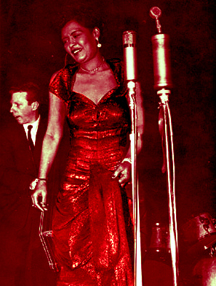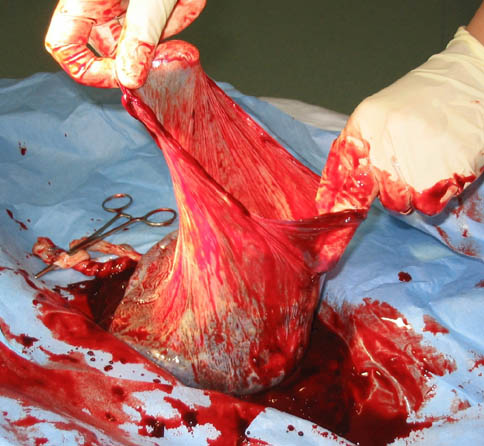 Ann Miller, star of "Easter Parade", b. April 7, 1923
Ann Miller, star of "Easter Parade", b. April 7, 1923
ARIES'S MOTHER PROBLEM
I hurry through these references in order to achieve a general impression of the harsh reality of the birth experience which Aries exposes.
Samuel Beckett (b. April 13, 1906): His parents made it clear that he was an unwanted pregnancy. He was obsessed with memories of suffocation in the womb, of an attempted wire hanger abortion on himself as a fetus, and with a nagging sensation of having been “incompletely born”.
Marguerite Duras (b. April 4, 1914) was obsessed by her demented mother, who favored her horrible eldest son. She was traumatized by her only pregnancy, which ended in stillbirth. She wrote, “I believe that always, or almost always, in all childhoods and in all the lives that follow them, the mother represents madness. Our mothers always remain the strangest, craziest people we've ever met.”
Cynthia Ozick (b. April 17, 1928): Her tale of Puttermesser and the Golem is an amazing meditation on the mother/child dyad. So, for that matter, is her famous holocaust story, The Shawl.
Baudelaire (April 9, 1821) and his mother, the remarried Mme Aupick, a paradigmatic relationship acutely analyzed by J-P Sartre in his classic 'Baudelaire'. Baudelaire lived fatherless with his mother in a state of symbiotic, quasi-fetal bliss, until he was eight, when she abruptly married Aupick. The poet never recovered from the late loss of his paradise.
The mother of the poet Paul Verlaine (b. March 30, 1844) “suffered three miscarriages before Paul’s birth in 1844; she preserved the fetuses in jars. When Paul came along he received the obsessive and indulgent mothering that such behavior portended. . . .In 1869 Verlaine made at least two violent attacks on his mother, threatening to kill her (how genuinely remains unclear), and on one occasion breaking the glass jars in which the three dead fetuses were kept.” (Bohemian Paris, by Jerrold E. Seigel)
Bette Davis, in the film Now, Voyager a self-proclaimed matricide and in her daughter's autobiography My Mother’s Keeper an abusive parent. Joan Crawford in Mildred Pierce, an abused mother, and in Mommy Dearest, an abusive mother. In Hush, Hush, Sweet Charlotte, they abuse each other.
Among the psychoanalysts:
Donald Winnicott and Melanie Klein, two important post-Freudian theorists specializing in the child: Each of them criticized Freud for his over-emphasis of the oedipal phase and his neglect of the crucial and often traumatic mother/child bond.
Wilhelm Reich (24 March 1897): As a teenager he spied on his mother’s trysts, breathlessly reported them to his father, and thus precipitated her suicide. Then he had to discover her body. This parallels Aries Christopher Hitchens's mother's suicide, which he hints he might have prevented. He was summoned to Athens to fetch her body, and shockingly confronted the blood-soaked scene of her death.
Billie Holiday suffered this formative meta-maternal disaster. Her favorite family member was her greatgrandmother, her grandfather's mother:
She really loved me and I was crazy about her. She had been a slave on a big plantation in Virginia and she used to tell me about it. She had her own little house in the back of the plantation. Mr. Charles Fagan, the handsome Irish plantation owner, had his white wife and children in the big house. And he had my great grandmother out in back. She had sixteen children by him, and all of them were dead except Grandpop.
We used to talk about life. And she used to tell me how it felt to be a slave, to be owned body and soul by a white man who was the father of her children. She couldn't read or write, but she knew the Bible by heart from beginning to end and she was always ready to tell me a story from the Scriptures.
She was ninety-six or ninety-seven then and had dropsy. I used to take care of her every day after school. No one else paid any attention. I'd give her a bath sometimes. And I'd always bind her legs with fresh cloths and wash the smelly old ones.
She'd been sleeping in chairs for ten yearrs. The doctor told her she'd die if she ever laid down. But I didn't know. And once after I'd changed the cloths on her legs and she had told me a story, she begged me to let her lie down. She said she was tired. I didn't want to let her. But she kept begging and begging. It was pityful.
Finally I spred a blanket on the floor and helped her stretch out. Then she asked me to lie down with her because she wanted to tell me another story. I was tired too. I'd been up early that morning to scrub steps. So I laid down with her. I don't remember the story she told me because I fell asleep right away.
I woke up four or five hours later. Grandma's arm was still tight around my neck and I couldn't move it. I tried and tried and then I got scared. She was dead, and I began to scream. The neighbors came running. They had to break Grandma's arm to get me loose. Then they took me to a hospital. I was there for a month. Suffering from what they said was shock.
When I got home Cousin Ida started right in where she had left off, beating me. This time it was for letting Grandma out of her chair. The doctor tried to stop her. He said if she kept it up I'd grow up to be nervous. But she never stopped.
What a gruesome version of the birth trauma, the terrifying struggle of nascent being against negation and regression, that continually animates Aries, the sign of beginning.
 Wednesday, March 25, 2009 at 05:57PM
Wednesday, March 25, 2009 at 05:57PM  Joseph Stone supplied this red rendition of Billie Holiday.
Joseph Stone supplied this red rendition of Billie Holiday.


